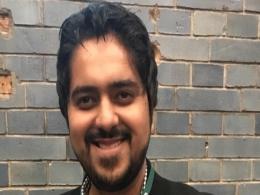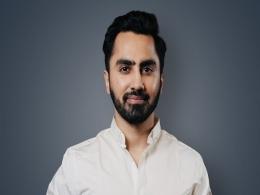Asian hedge funds, starved for capital since the financial crisis in 2008, are beginning to make a tactical sojourn to markets abroad, directly chasing clients in the United States and Europe to gather the elusive assets.
The move, vital for their survival as most of the assets into the Asian hedge funds are sourced from the two regions, comes after global players cornered much of the flows last year given their large asset base and proximity to institutional investors.
It also shows the growing confidence of Asian managers who, armed with a stellar performance in 2010 and 2009, are ready to commit capital and compete for assets with the big guns.
"How much of the capital that is really being raised by Asian managers is coming from Asia? Virtually all that money comes from Europe and America," said Mark Wightman, head of asset management strategy for Asia-Pacific at specialist technology group SunGard.
Joining the trend is Singapore-based Tantallon Capital that started an office in New York in the December quarter.
The hedge fund has also moved one of its portfolio managers, Tariq Ahmad, to New York, said Nick Harbinson, the former Merrill Lynch executive who with Alex Hill from Morgan Stanley founded Tantallon Capital in 2003.
"Most people will follow us eventually," Harbinson said.
Sydney-based Instinct Capital, whose $100 million Japan focused fund was up 33 per cent last year, is considering an onshore fund in the United States, said Stephen Good, who co-founded the firm in 2009.
Asia-focused Central Asset Investments told Reuters last month that its team was starting to market its fund in the United States to expand its client base and gain from a revival of interest there in Asian hedge funds.
Wightman of SunGard said he was aware of a couple of more managers who were preparing to join this growing trend but declined to name them as the information was not public.
"Smaller managers have been travelling extensively to find the right caliber of investor," Farhan Mumtaz, a senior analyst at hedge fund tracker Eurekahedge said.
"Recently we know that quite a few managers have been making marketing trips to Europe and even within Europe going to different countries, not just to London and Switzerland."
DUE DILIGENCE
Before 2008 investors were coming down to Asia, looking to allocate. However, that trend reversed in 2008 when the regional hedge fund managers saw business stall as a global credit crisis wiped out trillions of dollars of wealth globally.
Many hedge funds put up gates or restricted redemptions, scaring investors and making them more cautious as they start to allocate funds once again.
Investors looked for opportunities elsewhere or made Asian allocations via global mandated hedge funds given the increased emphasis on due-diligence and scrutiny which they found difficult to conduct from Europe or America.
"Post Madoff, you have to accumulate more ticks in boxes to go across the line," Andrew Alexander, who co-manages Macquarie's market-neutral Asia-focused hedge fund, said referring to the Wall Street fraudster Bernard Madoff whose multi-billion dollar Ponzi scheme trapped many hedge funds.
Funds with frequent investor contact and proximity to people who do due-diligence are more likely to attract assets, said Alexander, whose fund tripled assets in 2010 and benefited from Macquarie's presence in the United States and Europe.
Another reason is the proposed rules in both the United States and Europe which will force hedge funds in Hong Kong and Singapore to also comply with Western regulations.
"Come July, many of these managers will likely have to register in the US anyway, so there is no harm in setting up shop there, if it makes sense from a cost perspective," said Philip Tye, founder of Hong Kong-based DragonBack Capital.
ASIA IN FOCUS
Asian funds' move contrasts with the growing trend of large American hedge funds looking to set up shops in Hong Kong or Singapore as more and more institutional investors aim to boost exposure to the fast-growing region in search for higher yield.
With Asia ex-Japan hedge funds expected to add about $30 billion to their current assets of $110 billion by end of 2011, according to Eurekahedge, regional hedge funds industry prospects present a powerful lure to the global and Asian players.
Nearly two-thirds of the 100 leading institutional investors in hedge funds from around the world feel that Asia will present the best opportunity in 2011, according to a survey done by Preqin, a research firm focusing on alternative assets.
Global heavyweights such as GLG, Soros Fund Management, Moore Capital, Maverick Capital and Viking Global Investors are among the funds reported to be making a beeline for Asia.
Given the rising fight for assets, more Asian names will move out to tap the vast pool of assets in the West.
"You will see managers continue to put marketers and representatives in New York to market directly. You go where the money is," said Dan McNicholas, head of Asia financing sales at Merrill Lynch.





